What’s in a word?
Magnus Hirschfeld
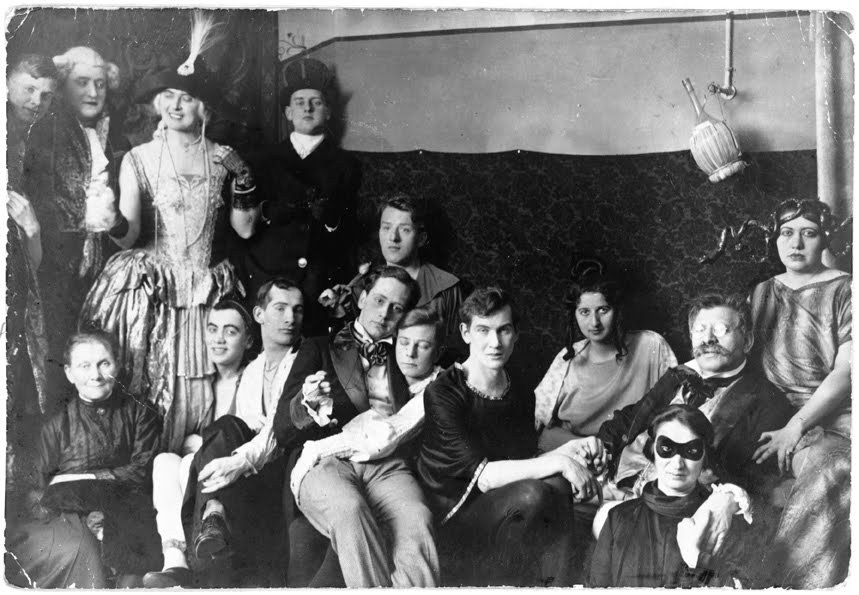

Last 27 January I went to two Holocaust Memorial Day events. No I am not Jewish, nor were all the victims of Hitler’s Endlösung “Final Solution”, Mengele’s experiments, and the Nazi Aryan utopian dream – which was a dystopian nightmare for everyone else.
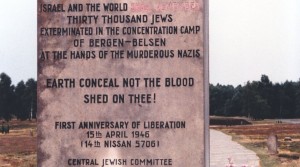
I did however study and teach Hebrew and aspects of Judaism in my past. I also visited the concentration camp, Bergen-Belsen, when I was 15. Today marks the 71st anniversary of the liberation of Auschwitz by the Soviets and Holocaust Memorial Day.
One internee at Belsen was Josef Čapek from Czechoslovakia a Cubist painter, cartoonist, writer and playwright. He wrote the utopian play “Land of Many Names” and is credited by his brother as being the first to invent and use the word “robot”. He was critical of Hitler and Nazism and was arrested in 1939. Whilst interned he managed to write “Poems from a Concentration Camp” but died in 1945, shortly before liberation.
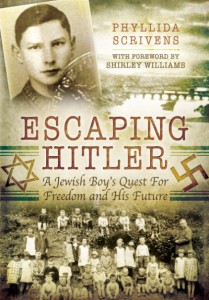
Joe Stirling, A Jewish teenage escapee from Nazi Germany, whose parents died in Sobibór concentration camp, lives in Norwich and continues to tell his survival story. Recently published as “Escaping Hitler“, it is a reminder to people of the Nazi Holocaust and the triumph of the human spirit. Joe has led an interesting and fulfilling life since arriving in England and is part of the Human Library project where he regularly regales people of all ages with his wit and wisdom.
As an LGBTI person and outspoken human rights activist, I could well have ended up in a concentration camp alongside Jews, Slavs, Roma, disabled people and many more. Sexuality, mental health, religious non-comformism, criticism of the state, ethnic origin were all factors that could have had one sent to a concentration camp and/or exterminated by bullet or Zyklon B gas – as hauntingly revisited in Philip K. Dick’s novel and now Amazon series, ‘The Man in the High Castle‘. Yes, Hitler singled out the Jewish race for a very particular and poisonous genocide, but others suffered too.
Many people don’t realise that Romany gypsies, those with mental and physical disabilities, abortionists, Jehovah Witnesses, non-conformist pastors and clergy, certain intellectual opponents, communists, and tens of thousands of homosexuals were sent to concentration camps by the Nazis, of which there over 1000, possibly many times that number spread across occupied countries, at least a dozen of which were extermination camps – to remove Lebensunwertes Leben “life unworthy of life”, especially the Jews.
Hundreds if not thousands of people were experimented on by Mengele, with castration, forced sex change interventions, growth hormones. Those born different, disabled, intersex or twins, were especially targeted for his torturous experiments.
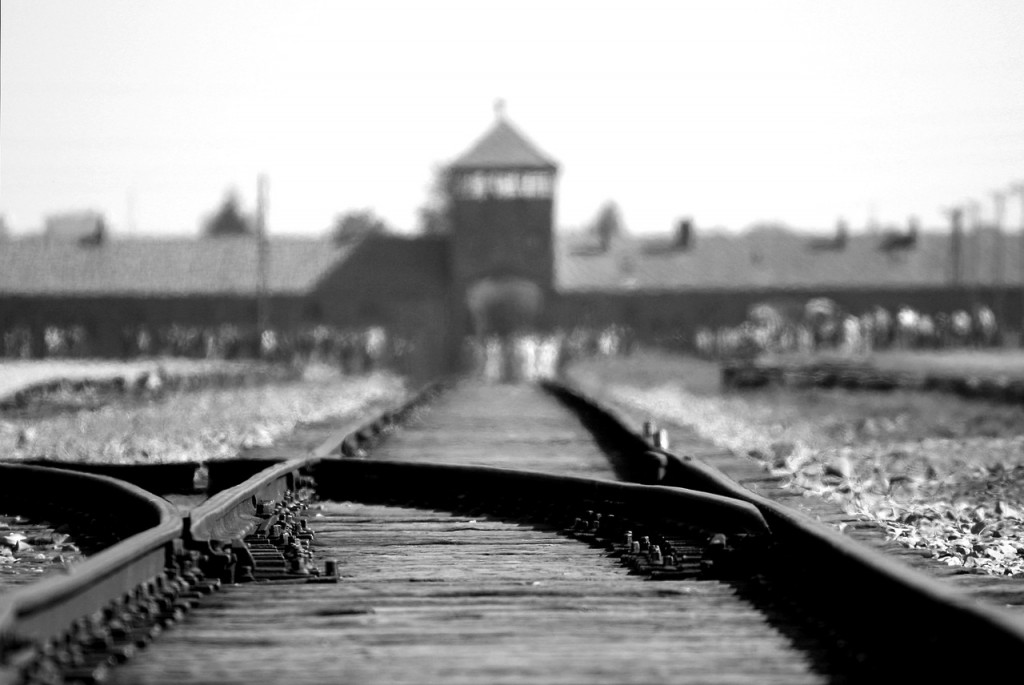
Labelled vice, degenerate, a plague, gay and bisexual men, many of whom were also Jewish, ended up incarcerated, experimented on, castrated, or killed.
“We must exterminate these people (homosexuals) root and branch… We can’t permit such danger to the country; the homosexual must be entirely eliminated.” – Heinrich Himmler
Furthermore, in 1945, they were not released but transferred to civil prisons as their sexuality remained illegal until 1968/9. Paragraph 175 outlawing homosexuality had rarely been enforced until Hitler took power in 1933. Germany only apologised in 2002 to the homosexual community for what happened to them before, during and after the Second World War.
Pink triangles, like the yellow star of David patch for Jews made by two yellow triangles, were sewn on to the camp clothes of homosexuals, but the same symbol also marked out rapists, paedophiles and other “sexual deviants”.
Black triangles were used for Roma, mentally ill, pacifists, anarchists and more. Later Roma badges were brown. Numerous other groups of people were classified, badged, and interned, or killed.
There was an outcry this week when it transpired that asylum seekers in Cardiff were being forced to wear coloured identification wristbands. If this were a music festival, and it were by age or event it would be quite different. After complaints the Clearsprings Group scrapped the policy.
Fear of difference drives prejudice. This week Trevor Phillips, former EHRC chair, has said that we should accept that British Muslims are “different” from the rest of society, and respect that, others have responded that we should not have to accept their difference.
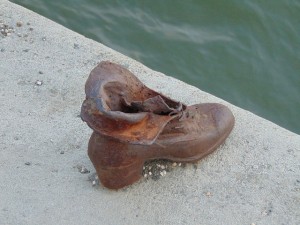
A memorial, to Jews shot and dumped in the Danube in Budapest, 1945, is a poignant image that is also beginning to symbolise the plight of migrants and refugees from current wars and genocides. “Shoes on the Danube Bank” was created by Can Togay and sculptor Gyula Pauer and shows just the left-behind shoes of the Jewish victims. Empty shoes have come to symbolise both silent protest at the Paris climate conference, and the positive response of communities to asylum seekers by offering shoes, including in Budapest.
Sadly, history and Hegel teach us that men and nations learn little and we do end up repeating the mistakes of the past. That is why the Holocaust and other genocides should be remembered. It’s easy to complain about human rights abuses and ethnic cleansing when it’s happening but wisdom is spotting the signs that it is about to happen. That means highlighting the laws and language that begin to scapegoat and marginalise, to discriminate and criminalise based upon sex, gender, faith, health, colour, race and ethnicity.
We can already see it in the political invective against “a bunch of migrants” (David Cameron in PMQs today), Donald Trump and Sarah Palin’s calls for American Muslim expulsion, and in the extremist cleansing by Islamic State of Yazidis, Christians, gays and non-Sharia Muslims. Meanwhile Syria continues its own purge, Turkey, Saudi Arabia subtly try to target Kurds and Shia, Israel treats Arab Israelis and Palestinians as second class.
As Santayana said, “Those who cannot remember the past are condemned to repeat it.” Sadly, most often, history teaches us that we do forget, repeat, and only learn from it after exhausting all other possibilities, as Aldous Huxley, Hegel, George Bernard Shaw and Abba Eban, all said in various ways.
“The most effective way we can combat this intolerance and honour those who survived and those who perished is to call on each other to do what the survivors have already done, to remember and to never forget.” – Steven Spielberg
We need to remember the Nazi Holocaust, Stalin’s similarly large-scale ethnic expulsions in Russia, state eugenics policies, Polpot’s purge in Cambodia, Rwanda, Bosnia, or the ethno-religious cleansing policies of ISIS or Boko Haram, and many more genocides and democides besides. It has happened more than once before and could, if not, is, happening again. That is why we remember Holocaust Memorial Day, so as not to repeat.
“First they came for the Communists
And I did not speak out
Because I was not a Communist
Then they came for the Socialists
And I did not speak out
Because I was not a Socialist
Then they came for the trade unionists
And I did not speak out
Because I was not a trade unionist
Then they came for the Jews
And I did not speak out
Because I was not a Jew
Then they came for me
And there was no one left
To speak out for me.” – Pastor Martin Niemoller
It’s 70 years today since the liberation of Bergen-Belsen (#Belsen70), another example of man’s inhumanity to man and what happens when you scapegoat an entire – or rather several – people groups, dehumanise, persecute, incarcerate and attempt to wipe them out. It is also 33 years since I visited Belsen as a 15 year-old, the same age as the famous diarist, Anne Frank, who died there just months before its liberation. It left indelible memories on me and a life-long belief in human rights for all people.
The concentration camp had various purposes during the Second World War, from Soviet and Italian POWs, Jewish internment, as well as housing other people groups including Czechs, Poles, homosexuals, Christians who opposed Nazism, Romani and Sinti ‘gypsies’.
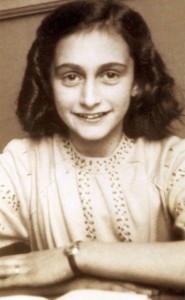
The Dutch Jewish teenager Anne Frank is remembered through her diary “The Diary of a Young Girl”. The UK based Anne Frank Trust, whose motto is “Challenge Prejudice, Reduce Hatred” ran a social media campaign on 14 April under the hashtag #NotSilent in which people recorded themselves reading one-minute extracts from her diary about life in hiding in Nazi-occupied Netherlands.
“We’re much too young to deal with these problems, but they keep thrusting themselves on us until, finally, we’re forced to think up a solution, though most of the time our solutions crumble when faced with the facts. It’s difficult in times like these: ideals, dreams and cherished hopes rise within us, only to be crushed by grim reality. It’s a wonder I haven’t abandoned all my ideals, they seem so absurd and impractical. Yet I cling to them because I still believe, in spite of everything, that people are truly good at heart.
It’s utterly impossible for me to build my life on a foundation of chaos, suffering and death. I see the world being slowly transformed into a wilderness, I hear the approaching thunder that, one day, will destroy us too, I feel the suffering of millions. And yet, when I look up at the sky, I somehow feel that everything will change for the better, that this cruelty too will end, that peace and tranquillity will return once more. In the meantime, I must hold on to my ideals. Perhaps the day will come when I’ll be able to realize them!” – 15th July, 1944, Diary of A Young Girl, Anne Frank
Her hopefulness echoes the words of Nelson Mandela:
“People must learn to hate, and if they can learn to hate, they can be taught to love, for love comes more naturally to the human heart than its opposite” – Nelson Mandela
Another internee was Josef Čapek, from what is now the Czech Republic, a Cubist painter, cartoonist, writer and playwright. He wrote the utopian play “Land of Many Names” and is credited by his brother as being the first to invent and use the word “robot”. He was critical of Hitler and Nazism and was arrested in 1939 upon the invasion of Czechoslovakia, though he managed to write “Poems from a Concentration Camp” at Bergen-Belsen, though died in 1945 shortly before liberation.
Some 50-70,000 are though to have died, some 30,000 of them Jewish, among the 120,000 held there, escalating to 20,000 a month before liberation put a stop to it. It was far from the worst of camps, and yet it was enough to shock those that discovered it, almost by accident.
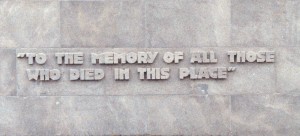
The camp was liberated on April 15, 1945, by the British 11th Armoured Division who discovered approximately 60,000 prisoners inside and at satellite camps, mostly emaciated and/or seriously ill with typhus or similar. Lying, unburied, around the camp lay 13,000 corpses and even some still living among them. Another 14,000 died of infection and starvation in the 10 weeks following liberation.
The BBC’s Richard Dimbleby was there and reported:
“Over an acre of ground lay dead and dying people. You could not see which was which… The living lay with their heads against the corpses and around them moved the awful, ghostly procession of emaciated, aimless people, with nothing to do and with no hope of life, unable to move out of your way, unable to look at the terrible sights around them … Babies had been born here, tiny wizened things that could not live…This day at Belsen was the most horrible of my life.”
The BBC also recently interviewed one of the few remaining survivors, Gena Turgel.
The SS destroyed most of the inmate records and the British, after making the SS build mass graves for the unburied, then destroyed the camp by fire because of the disease there.
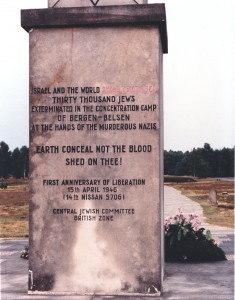
Whilst nature was allowed to take over the remains, in the way that only nature does, the mass mounds of graves containing up to 5,000 people each remained obvious. Over the following months wooden monuments were erected by varying groups and a year later a stone monument was erected by the Central Jewish Committee of the British Sector.
We ignore growing ethnic & sectarian division and hatred at our peril – particularly in the #MENA region. We must never forget #Belsen70
— Ollie Cornock (@OllieArabia) April 15, 2015
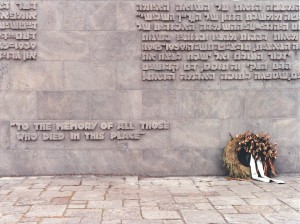
In 1952 Germany’s president, Theodor Heuss, called on the German nation to never forget what had happened at Bergen-Belsen. Nor should we, whether Jew, Christian and other faiths, gypsy, mentally ill or disabled, political enemy or prisoner of war, all deserve human rights and not inhuman treatment or attempted genocide.
best herbal supplements sex drive cbd gummies and erection extenze fast acting male enhancement long lasting sex without pills top gun male enhancement pills safety of rlx male enhancement does maca root help with sex drive rhino 200k pill review male sex pills onenight stand over the counter penis enlargement pills pills for stronger erection otc alpha q male enhancement reviews 10 pack male enhancement pills top 10 natural erection pills medically enlarging a penis does male enhancement stiff nights work what drugs can help with erectile dysfunction vegas strips male enhancement reviews diet while using ed pills consumer reports male enhancement productsedema from blood pressure medication low blood pressure reasons and treatment which blood pressure medications protect kidneys blood pressure medications and weight gain alcortin blood pressure medication what is a cheaper version of bystolic blood pressure medication blood pressure medication at night time cinnamon blood pressure medication b blood pressure medication how to lower high blood pressure fast without medication naturally low blood pressure and chicago medical proven ways to lower your blood pressure without medication high blood pressure medication clonidine what are common side effects of high blood pressure medication medications taken for high blood pressure do high blood pressure medications thin the blood high blood pressure hypertension diagnosis and treatment mayo mayo clinic accent seasoning and blood pressure medication prednisone and blood pressure medication can i just stop taking my blood pressure pills